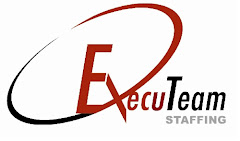
The most problematic part of a resume for people seems to be crafting their accomplishments. The confusion between an accomplishment and a responsibility is the difference between generating excitement by selling what you can do, and making a bland statement that elicits the question “So what?” It’s the difference between being invited in for an interview….and getting no response at all.
A responsibility reads as if it was taken from your job description. It fails to distinguish you from any other person that held that title before you, or holds that title at any other company. It says your function, but it doesn’t speak to your ability to perform that function.
By contrast, an accomplishment is what differentiates you from any other person that does, or has done, that job. It not only indicates how well you perform your job, but what type of person you are.
How does a factual accomplishment reveal something as subtle and subjective as a personality trait? Measured with the length of time you were at a company, your number of accomplishments indicates the degree to which you are a go-getter. It says if you’re motivated to go beyond the average job, and how much pride you take in your work.
It tells the hiring authority if you look for problems and find ways to solve them, or if you are content with saying, “That’s good enough.” And it also tells him how well you know your job by how well you solved those problems. Let’s look at an example. If you’re a teacher, a responsibility might read:
•Developed innovative, education-based curriculum
Which leaves the following questions:
•For what classes did you develop a curriculum?
•Why did it need to be developed?
•What was going on before it was developed?
•What was the result of the development?
Interviewers want answers, not questions. Since the responsibility statement doesn’t indicate how well you performed your job, it’s easier not to invite you in for an interview. Interviewers don’t know if you have accomplishments hiding behind your responsibilities. They assume you don’t have anything to say, because you didn’t say it. They don’t care that perhaps you didn’t know how to say it. If your resume doesn’t sell you, it’s not their problem. It’s yours.
By contrast, the accomplishment version of the same statement might read:
•Created and implemented innovative, education-based curriculum that engaged students more actively, resulting in 75% of student body raising grades by average of a full point
This says you’re worth talking to. Then at the interview, it opens the field for the interviewer to ask you for more information about what types of programs you implemented and how you implemented them.
An accomplishment is a results-oriented statement. It shows the benefit of hiring you by telling what you can do. What you’re saying is, “I know what you want done, and I’ve done that. I’ve done it successfully for my previous company; therefore, I can do it successfully for you. When you hire me, you aren’t risking an unknown. You’re hiring someone who has a proven ability to do the job successfully.”
That’s what interviewers want to know. That’s what they want to hear. They don’t want to wonder, and they don’t want to figure it out. If your resume doesn’t indicate what you’re capable of, the chance of an interview in which to sell yourself is slim.
If you’ve been sending out resumes and getting nothing in response, take a look at your bullets under each company name. Do they just say what you did, or do they say how well you did it?
You’re selling a product, and the product is you. The interviewer is the buyer, and your resume is, in effect, your marketing brochure. But if the buyer isn’t interested, you can’t close the sale. And that’s your problem, not theirs.
- Judi Perkins
From www.net-temps.com











